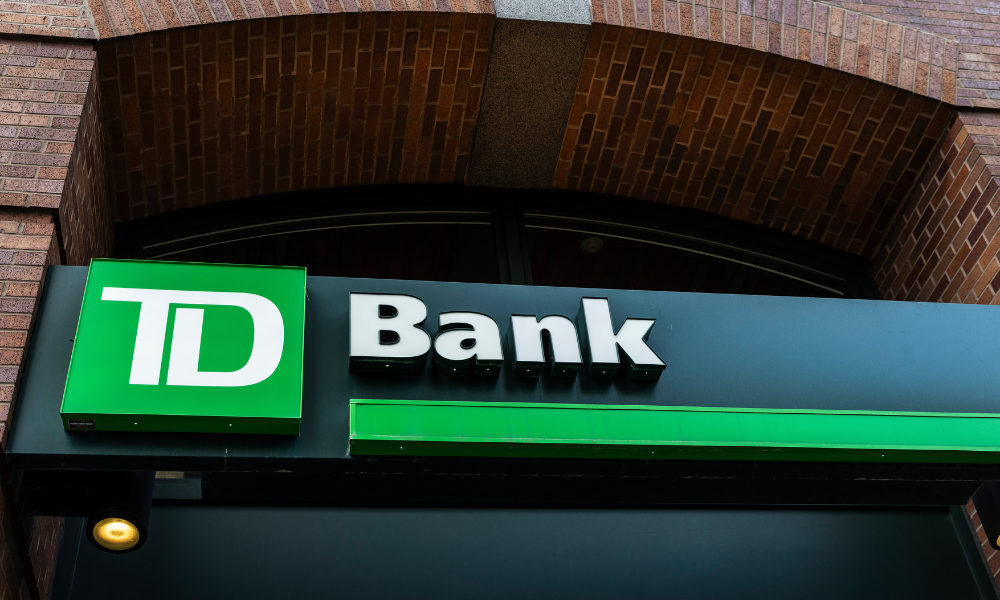

Toronto-Dominion Bank (TD) has significantly reduced the compensation of its top U.S. executives as the fallout from its money-laundering scandal continues to reshape the bank’s leadership and financial strategy. The move is part of a broader effort to signal accountability and redirect focus toward regulatory compliance and financial recovery.
TD’s U.S. chief executive, Leo Salom, experienced a 35% reduction in his variable pay for 2024, bringing his total compensation down to $3.5 million from $4.6 million the previous year. However, the bank has set aside a potential $2 million in share-based compensation for him in 2025, contingent on meeting specific anti-money laundering (AML) remediation milestones. The bank’s board emphasized Salom’s critical role in navigating TD’s compliance overhaul, stating that he is expected to be at the forefront of ensuring stronger regulatory adherence in the U.S. market.
The reductions in executive pay extend beyond Salom. In January, TD disclosed that it had slashed variable compensation for 41 executives by a total of C$30 million. Former CEO Bharat Masrani bore an even steeper cut, receiving no bonus at all in 2024. His total pay plummeted to C$1.61 million, down from C$13.34 million the previous year. Masrani, who stepped down amid mounting scrutiny, will continue in an advisory role until July, receiving a C$500,000 monthly fee.
The AML scandal, which erupted last year, led to TD pleading guilty to compliance failures that allowed illicit funds tied to drug cartels to flow through its U.S. operations. The bank agreed to pay a historic $3.1 billion fine in October, in addition to other financial penalties and restrictions that have hindered its U.S. growth ambitions. The settlement with U.S. authorities resulted in an asset cap on TD’s retail banking operations, further stalling its expansion plans.
In the wake of the scandal, a wave of executive departures has reshaped the bank’s leadership. Twenty-two individuals have exited the company following internal accountability reviews.
Also leaving is Matt Boss, TD’s U.S. consumer banking chief, who will join Citizens Bank as head of consumer banking in May. His departure follows those of other key executives, including the bank’s chief global AML officer, Herb Mazariegos, and chief compliance officer, Monica Kowal.
The financial and reputational costs of the AML scandal have been severe for TD. In addition to regulatory fines, the bank suffered its first quarterly loss in over two decades and saw its planned acquisition of First Horizon Bank collapse. The scandal also drew comparisons to past banking crises, with TD now operating under stringent regulatory oversight similar to Wells Fargo’s post-2018 restrictions.
As TD works to rebuild its credibility, the bank’s leadership is under pressure to implement robust compliance measures while managing the financial fallout. The cutbacks in executive pay signal an effort to align compensation with performance and regulatory expectations, but whether these measures will be enough to restore investor confidence remains to be seen.

It's a showdown for the ages as wealth managers assess its impact on client portfolios.

CEO Ritik Malhotra is leveraging Savvy Wealth's Fidelity partnership in offers to Commonwealth advisors, alongside “Acquisition Relief Boxes” filled with cookies, brownies, and aspirin.

Fraud losses among Americans 60 and older surged 43 percent in 2024, led by investment schemes involving crypto and social manipulation.

The alternatives giant's new unit, led by a 17-year veteran, will tap into four areas worth an estimated $60 trillion.

"It's like a soap opera," says one senior industry executive.
RIAs face rising regulatory pressure in 2025. Forward-looking firms are responding with embedded technology, not more paperwork.
As inheritances are set to reshape client portfolios and next-gen heirs demand digital-first experiences, firms are retooling their wealth tech stacks and succession models in real time.
